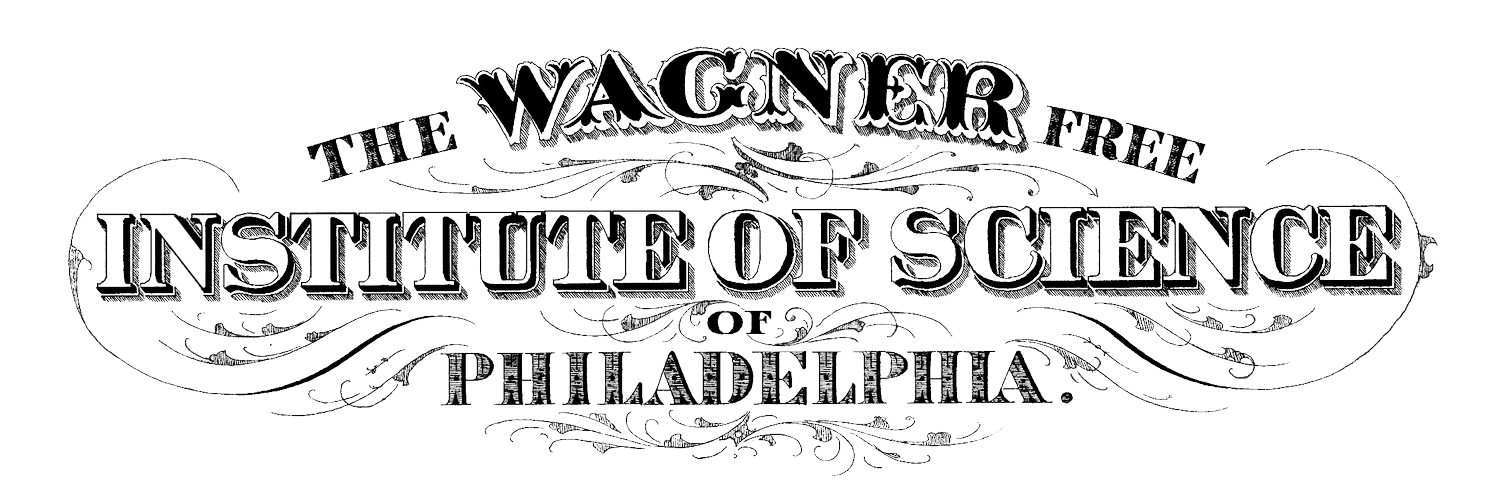History of the Wagner
THE BEGINNING | Formally incorporated in 1855, the Institute had its inception in a public lecture series begun in the early 1850s by founder William Wagner (1796-1885), a noted Philadelphia merchant, philanthropist, gentleman scientist, and lifelong collector of natural history specimens. Believing strongly that education in the sciences should be available to everyone, Wagner began offering free lectures on science at his home, Elm Grove, a colonial farm estate then on the outskirts of the city. To illustrate the lectures, he drew on the vast collection of specimens he had gathered since his childhood, including many he had acquired during the years he spent traveling around the world as an agent for the well-known Philadelphia financier Stephen Girard. These lectures became so popular that by 1855 he moved them to a public hall on Spring Garden Street to accommodate the rapidly growing audience. He also appointed a faculty to teach six evenings a week on subjects ranging from paleontology and chemistry to botany and architecture. All the classes were offered free of charge with an open admission policy that allowed women as well as men to attend.
Based on the success of earlier lectures, in 1859 Wagner began construction on a building that would become the permanent home for his collections and his educational program. Designed by Philadelphia architect John McArthur, Jr., who later designed City Hall, the building was completed and opened to the public in 1865.
THE LEIDY ERA | Wagner continued to lecture and lead the unique institution he had founded until his death in 1885. Direction then passed to a Board of Trustees who appointed Dr. Joseph Leidy (1823-1891), a biologist of international reputation, to head its scientific and educational programs. Joseph Leidy’s appointment ushered in an active and productive era in which the Institute’s mission and programs were greatly expanded. He invigorated the public lectures by retaining some of the most noted scientists and explorers of the day for the faculty. Leidy also added original scientific research to the Institute’s programs and organized its earliest field expeditions. The results of this work were published in the Institute’s own publication, The Transactions of the Wagner Free Institute of Science.
Leidy’s most lasting and significant contribution to the Institute, however, was his reorganization of the museum. Wagner’s original collections had been greatly enlarged by specimens collected in the field and through purchases and acquisitions. Leidy personally developed and supervised their reorganization into a systematic display in which specimens and cases were arranged so that visitors and researchers moved from simpler to more complex organisms and through geologic time as they walked through the exhibition hall. This new display opened in 1891 and little has been altered since Leidy’s time, making the Institute an exceptional example of a Victorian science museum.
THE 20TH CENTURY & BEYOND | By the turn of the century, the Institute was a leading force in public education in Philadelphia. It was an early participant in the groundbreaking University Extension movement in the city and in 1892, the Institute opened the first branch of the Free Library of Philadelphia. Owing to heavy usage of the library, in 1901 the Institute added a west wing to its building for use by the Free Library.
Today, the Wagner Free Institute of Science is widely recognized as one of Philadelphia’s historic treasures. It is committed to preserving its historic building and collections for future generations as itcontinues to serve as a rich educational resource in science, natural history, and the history of science. Through its wide variety of programs – including the free museum, field trip visits, public lectures, evening courses, library and archives, and community school partnerships – the Wagner serves a broad audience in Philadelphia and beyond. In recognition of Wagner’s legacy of free education, Philadelphia City Council presented it with the 2011 Councilman David Cohen Award for outstanding commitment to social and economic justice.




